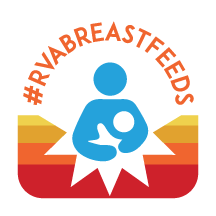
2024 Focus:
Social Justice Issues in Perinatal Health and Human Milk Feeding
Based on Communities of Practice principles, Perinatal Health Mondays are an informal, safe, and consistent space where perinatal health and early childhood stakeholders gather to share knowledge, challenges, and opportunities for peer learning. Each PHM session focuses on a specific topic, led by a subject matter expert. Following the presentation there will be a brief opportunity for facilitated networking and discussion.
Together we are building a community where all families are supported through the life-changing journey of pregnancy, birth, and early parenting.
Bring your challenges, your questions, and most of all your curiosity.
Got an idea for a topic you’d like to learn more about? Drop us a line at events@nurturerva.org.
Details and Registration:
Sep 9: Breastfeeding & Bongs; Let’s be blunt about cannabis use in pregnancy & breastfeeding
Click here to register.
Description:
‘Marijuana is great for nausea, right?’ A cloud of mystery surrounds cannabis, a popular drug that is undergoing rapid legalization in the United States. In 2015, greater than 10% of pregnant women reported using marijuana in the past year, and about 5% of pregnant woman report use within the past month. Does it have a place in pregnancy and breastfeeding? Does it pass through to the fetus or nursing infant? What effects does cannabis have on the developing brain? Come and have all your burning questions answered!
Objectives:
- Participants in this session will understand the basic molecular effects of cannabis use
- Participants will understand the current statistics of cannabis use during pregnancy and breastfeeding.
- In addition, they will understand what the latest medical research can tell about the effects of perinatal cannabis exposure on developing brains. We will be separating fact from fiction on this controversial drug.
Presenter Bio:
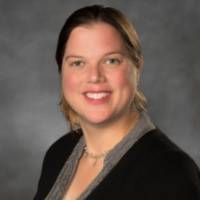 Dr. Tricia Hardt Smith is an Associate Professor in the Biology Department of the Virginia Commonwealth University and loves drugs! She is the creator and instructor of the ‘Biology of Drugs’ course which has received rave student reviews since its inception in 2014. In addition, she is the director of the Molecular Capstone Laboratory course and teaches Cellular and Molecular Biology. Dr. Smith’s previous research focused primarily on drugs of abuse and has included the electrophysiological effects of morphine on enteric neurons and the effects of protein interactions on the cannabinoid (CB1) receptor.
Dr. Tricia Hardt Smith is an Associate Professor in the Biology Department of the Virginia Commonwealth University and loves drugs! She is the creator and instructor of the ‘Biology of Drugs’ course which has received rave student reviews since its inception in 2014. In addition, she is the director of the Molecular Capstone Laboratory course and teaches Cellular and Molecular Biology. Dr. Smith’s previous research focused primarily on drugs of abuse and has included the electrophysiological effects of morphine on enteric neurons and the effects of protein interactions on the cannabinoid (CB1) receptor.
Dec 9: Topic to be announced
Click here to register.
Description
Objectives:
Presenter Bio:
Past Offerings:
May 13: Las Dos Cosas: Combination Feeding in the Latinx Communities
Click here to register.
Note: This presentation will be offered in English. Through partnership with the Virginia Community Health Workers Association, it will be offered in Spanish on Tuesday, May 14, 2024, from 12 – 1 pm.
Haga clic aquí para registrarse para la presentación en español.
Description
We often hear that Hispanic, Latina, or Latinx women and families have the highest breastfeeding rates of all communities in the United States. What is less discussed is how this population also has the highest rate of mixed feeding (formula and breastfeeding) compared to other populations. At the same time, these communities are neither monolithic or singular as we are speaking of many countries, nationalities, racial and tribal identities, immigration status, and levels of assimilation to US cultures. This presentation will discuss why combination feeding does not have the same health benefits as exclusive breastfeeding, what are some of the factors that may influence the decision to combination feed, and how we can help navigate health decisions for families that come from these cultures
Objectives:
At the end of the presentation, the learners will be able to:
- Differentiate between some of the varied Hispanic, Latino or Latinx communities and comprehend how some of these factors may affect infant feeding choices.
- Identify the health benefits of exclusive breastfeeding, mixed or combination feeding, and exclusive formula feeding during the first six months of life and/or in combination with complementary foods until two.
- Recognize some of the cultural aspects which impact the decision to combination feed and assist families to make healthier choices that are appropriate for their needs.
Presenter Bio:
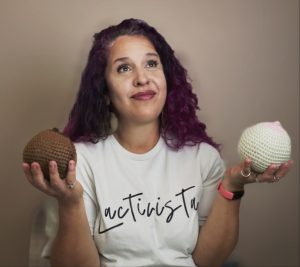 Lourdes Santaballa: Activist, organizer, peer counselor, community-based IBCLC, podcaster, researcher, mentor, and trainer, having worked in the domestic violence, housing equity and reproductive rights/infant feeding movements. Co-founder of Alimentación Segura Infantil, an intergenerational organization focused on increasing breastfeeding, leadership and training and gender equity in traditionally marginalized communities, with a focus on disaster preparedness, response, and recovery and against binary and colonialist backlash. Expert on IYCF-E and International Code on Marketing of Human Milk Substitutes. You can listen to her weekly podcast, Teta y Pecho: Lactancia Interseccional on all of the major platforms.
Lourdes Santaballa: Activist, organizer, peer counselor, community-based IBCLC, podcaster, researcher, mentor, and trainer, having worked in the domestic violence, housing equity and reproductive rights/infant feeding movements. Co-founder of Alimentación Segura Infantil, an intergenerational organization focused on increasing breastfeeding, leadership and training and gender equity in traditionally marginalized communities, with a focus on disaster preparedness, response, and recovery and against binary and colonialist backlash. Expert on IYCF-E and International Code on Marketing of Human Milk Substitutes. You can listen to her weekly podcast, Teta y Pecho: Lactancia Interseccional on all of the major platforms.
April 15: Introducing the Virginia Prison Birth Project
Click here to register
Description
The female prison population has risen 8-fold from 13,000 in 1980 to over 250,000 today. At present, there are over one-million women behind bars in the US or under the control of the criminal justice system in some form— including parole, probation, jail, state, and federal prison. Females of childbearing age are the fastest-growing segment of the criminal justice system. One in four of these individuals arrive pregnant or having given birth within the previous year.
The Virginia Prison Birth Project (VaPBP) has been providing perinatal support services for people in prison since 2019 and has since expanded services to other correctional facilities in the Richmond area. This presentation includes the history of how we began, who we support, where we serve, what services we provide and why we do this work.
Learning Objectives:
- Learn about what the Virginia Prison Birth Project is, who they serve, what they do, and why
- Understand what it’s like to support this population
- Learn about VaBPB’s vision and how community is essential
Presenter Bio:
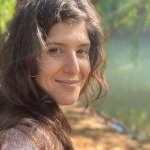 Sara Zia (she/her) is Founder and Executive Director of Virginia Prison Birth Project. Her academic background is in philosophy with a BA from UCLA and an MA from UVA. Sara is a seasoned doula and Certified Professional Midwife licensed by the Virginia state board of medicine. She’s also a seasoned yoga instructor, with experience leading a variety of yoga practices for nearly 15 years, including prenatal and postpartum yoga. When she’s not attending births, leading sessions or on her mat, she’s chasing her daughter around town and feeding people she loves.
Sara Zia (she/her) is Founder and Executive Director of Virginia Prison Birth Project. Her academic background is in philosophy with a BA from UCLA and an MA from UVA. Sara is a seasoned doula and Certified Professional Midwife licensed by the Virginia state board of medicine. She’s also a seasoned yoga instructor, with experience leading a variety of yoga practices for nearly 15 years, including prenatal and postpartum yoga. When she’s not attending births, leading sessions or on her mat, she’s chasing her daughter around town and feeding people she loves.
Nov 13, 2023: Healing for Feeding: Helping the Newborn Family After Traumatic Births
Click here to register
Description
Many families report having difficult birth experiences. Babies need their whole body to feed, and may exhibit challenges feeding related to their in utero or birth experiences. This presentation introduces “feeding trauma” and the impact of birth trauma and birth interventions on lactation. It also presents the baby’s experience and the professional’s role in to help with feeding trauma that include approaches for the newborn family, therapy for the baby, and simple tools for professionals.
Objectives:
- Recognize birth trauma in the breastfeeding dyad
- Identify markers of the intrauterine and birth experience from the baby’s perspective, particularly physiological markers, postures and behaviors
- Begin to assess feeding trauma and the skills needed to integrate birth trauma as a lactation consultant, and refer as needed
Presenter Bio:
 Kate White is an award-winning educator and an advanced bodyworker. She is trained in somatic therapies, prenatal and perinatal somatic health, lactation, brain development, infant mental health, and has specialized in parent-baby dyad care using somatic prevention and trauma healing approaches for nearly 25 years. She is a mother of two children, holds a BA and MA in Communication, is a Registered Craniosacral Therapist in the Biodynamic Craniosacral method and a Somatic Experiencing® Practitioner. Her work combines somatic trauma healing, energetic therapies, bodywork, pediatric therapies and education about the nervous system to help give families with babies and small children the best possible start. She is Founding Director of Education for the Association for Prenatal and Perinatal Psychology and Health where from 2013 – 2019 she created and ran the world renown Prenatal and Perinatal Educator Certificate program, a large online educational program for professionals. She went on to found Prenatal and Perinatal Healing Online and the Prenatal and Perinatal Somatics Institute. She teaches classes online and in person, and offers a training called Integrated Prenatal and Perinatal Dynamics. She has a private practice in Charlottesville, VA called Belvedere Integrated Healing Arts (belvederearts.com) and offers her own seminars through the Center for Prenatal and Perinatal Programs, ppncenter.com
Kate White is an award-winning educator and an advanced bodyworker. She is trained in somatic therapies, prenatal and perinatal somatic health, lactation, brain development, infant mental health, and has specialized in parent-baby dyad care using somatic prevention and trauma healing approaches for nearly 25 years. She is a mother of two children, holds a BA and MA in Communication, is a Registered Craniosacral Therapist in the Biodynamic Craniosacral method and a Somatic Experiencing® Practitioner. Her work combines somatic trauma healing, energetic therapies, bodywork, pediatric therapies and education about the nervous system to help give families with babies and small children the best possible start. She is Founding Director of Education for the Association for Prenatal and Perinatal Psychology and Health where from 2013 – 2019 she created and ran the world renown Prenatal and Perinatal Educator Certificate program, a large online educational program for professionals. She went on to found Prenatal and Perinatal Healing Online and the Prenatal and Perinatal Somatics Institute. She teaches classes online and in person, and offers a training called Integrated Prenatal and Perinatal Dynamics. She has a private practice in Charlottesville, VA called Belvedere Integrated Healing Arts (belvederearts.com) and offers her own seminars through the Center for Prenatal and Perinatal Programs, ppncenter.com
Sep 18, 2023: Things I learned about breastfeeding that were wrong! — supporting new moms with evidence”
Click here to register
Description
Hear from Dr. Ann Kellams, a Newborn Hospitalist and Breastfeeding Medicine specialist, and current President of the Academy of Breastfeeding Medicine about evidence-based ways to support and manage the first few weeks of exclusive breastfeeding. Learn practical strategies to help new families meet their breastfeeding goals.
Objectives
At the end of the session, participants will be able to:
- dispel common myths about breastfeeding management
- troubleshoot a painful latch
- give advice to parents about strategies to be successful with breastfeeding
Presenter Bio:
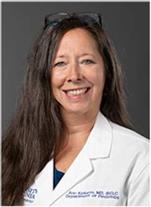 Ann Kellams has extensive experience caring for newborns and their mothers and families with a broad diversity of racial/ethnic, socioeconomic, education, and insurance status in the hospital during the birth stay and in the outpatient settings since 1998. For the past 16 years, she has worked exclusively with this population of new and expectant parents and their newborns on the maternity unit and also in an outpatient clinic setting. She is a Professor of Pediatrics at the University of Virginia (UVA), attends on the Newborn Hospitalist service (and was Medical Director for 12 years), and is Director Breastfeeding Medicine Services. Dr. Kellams has expertise in clinical trials and specifically in studying prenatal breastfeeding and safe sleep education videos, hospital quality improvement, and mHealth postnatal breastfeeding and safe sleep interventions. She also has extensive experience examining disparities in infant care practices such as breastfeeding and safe sleep. Dr. Kellams is currently a Co-PI for an NICHD-funded study (SMARTER) examining whether safe sleep and breastfeeding mHealth education videos delivered prenatally and/or postnatally impact safe sleep and breastfeeding infant care practices in a WIC-eligible population. She was previously a Co-Investigator for an NIH funded study (SMART) to evaluate different educational interventions, including mobile health methods, to teach new parents about safe infant sleep. She was the Principal Investigator on a study funded by the Virginia Department of Health that studied a prenatal breastfeeding education video shown in prenatal clinics in over 500 expectant, WIC-eligible mothers. She has experience and expertise in prenatal education, newborn care, anticipatory guidance, and breastfeeding promotion and support in the hospital, community, statewide, and national levels, and has received special training to support mothers with perinatal mood and anxiety disorders (PMADs). Dr Kellams is a Fellow of and currently President of the Academy of Breastfeeding Medicine, is on the Executive Committee of the American Academy of Pediatrics (AAP) Section on Breastfeeding, and also is a past Chair of the US Department of Agriculture’s National Advisory Council on Maternal, Infant and Fetal Nutrition which makes recommendations for WIC. She is also active and well-connected at the community level, serving on the Virginia Department of Health’s Improved Pregnancy Outcomes workgroup, is involved with the Virginia Neonatal Perinatal Collaborative, and serves on the state WIC Breastfeeding Advisory committee, and the Virginia Chapter of the AAP Board.
Ann Kellams has extensive experience caring for newborns and their mothers and families with a broad diversity of racial/ethnic, socioeconomic, education, and insurance status in the hospital during the birth stay and in the outpatient settings since 1998. For the past 16 years, she has worked exclusively with this population of new and expectant parents and their newborns on the maternity unit and also in an outpatient clinic setting. She is a Professor of Pediatrics at the University of Virginia (UVA), attends on the Newborn Hospitalist service (and was Medical Director for 12 years), and is Director Breastfeeding Medicine Services. Dr. Kellams has expertise in clinical trials and specifically in studying prenatal breastfeeding and safe sleep education videos, hospital quality improvement, and mHealth postnatal breastfeeding and safe sleep interventions. She also has extensive experience examining disparities in infant care practices such as breastfeeding and safe sleep. Dr. Kellams is currently a Co-PI for an NICHD-funded study (SMARTER) examining whether safe sleep and breastfeeding mHealth education videos delivered prenatally and/or postnatally impact safe sleep and breastfeeding infant care practices in a WIC-eligible population. She was previously a Co-Investigator for an NIH funded study (SMART) to evaluate different educational interventions, including mobile health methods, to teach new parents about safe infant sleep. She was the Principal Investigator on a study funded by the Virginia Department of Health that studied a prenatal breastfeeding education video shown in prenatal clinics in over 500 expectant, WIC-eligible mothers. She has experience and expertise in prenatal education, newborn care, anticipatory guidance, and breastfeeding promotion and support in the hospital, community, statewide, and national levels, and has received special training to support mothers with perinatal mood and anxiety disorders (PMADs). Dr Kellams is a Fellow of and currently President of the Academy of Breastfeeding Medicine, is on the Executive Committee of the American Academy of Pediatrics (AAP) Section on Breastfeeding, and also is a past Chair of the US Department of Agriculture’s National Advisory Council on Maternal, Infant and Fetal Nutrition which makes recommendations for WIC. She is also active and well-connected at the community level, serving on the Virginia Department of Health’s Improved Pregnancy Outcomes workgroup, is involved with the Virginia Neonatal Perinatal Collaborative, and serves on the state WIC Breastfeeding Advisory committee, and the Virginia Chapter of the AAP Board.
Jul 17, 2023: New Legal Rights for Pregnant and Postpartum Workers
Click here to register.
Description:
Many workers find it difficult or even impossible to manage their pregnancy, lactation, and postpartum health needs while working. Thankfully, pregnant, postpartum, and lactating workers now have new rights under federal law. The PUMP Act and the Pregnant Workers Fairness Act now require employers to provide changes at work to protect pregnant/postpartum workers’ health and wellbeing. These changes include everything from pumping break time and space, to permission to eat and drink on the clock, to maternity leave. This session will provide an overview of the new laws, how to use them, and where to go for assistance.
Learning Objectives:
By the end of the session, the learner will be able to:
- Understand core protections provided by the new laws protecting lactating workers (PUMP and PWFA)
- Understand core protections provided by the Pregnant Workers Fairness Act to pregnant workers and those with pregnancy-related conditions; and,
- Employ tools and strategies to respond to common workplace challenges they may encounter in their communities.
Presenter Bio:
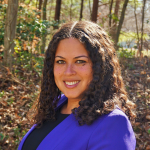 Jessica Lee is a mother and an anti-discrimination attorney focusing on the needs of pregnant and caregiving workers and students. For the last two decades, Jessica has worked with non-profit organizations to advance gender, racial, and environmental justice in Virginia and internationally. In 2015, Jessica joined the Center for WorkLife Law where she is now the Senior Staff Attorney and Director of the Center’s Pregnant Scholar Initiative. Jessica’s research and advocacy advances gender and racial equity in the workplace and in education, and she is a nationally recognized expert on the laws at the intersection of employment, education, and maternal and infant health. Jessica directly counsels pregnant and postpartum people facing discrimination or health risks at work or school and enjoys translating complicated legal issues into approachable and useful tools for non-lawyers. She also engages in policy advocacy to secure protections for workers and families, with the overarching goal that no one should have to choose between protecting their health and earning a living. Jessica earned her J.D. from the University of Virginia School of Law and is a graduate of Virginia Commonwealth University. In her free time, Jessica can usually be found caring for her edible and medicinal garden or exploring nature with family. Jessica is a member of Nurture’s Board of Directors.
Jessica Lee is a mother and an anti-discrimination attorney focusing on the needs of pregnant and caregiving workers and students. For the last two decades, Jessica has worked with non-profit organizations to advance gender, racial, and environmental justice in Virginia and internationally. In 2015, Jessica joined the Center for WorkLife Law where she is now the Senior Staff Attorney and Director of the Center’s Pregnant Scholar Initiative. Jessica’s research and advocacy advances gender and racial equity in the workplace and in education, and she is a nationally recognized expert on the laws at the intersection of employment, education, and maternal and infant health. Jessica directly counsels pregnant and postpartum people facing discrimination or health risks at work or school and enjoys translating complicated legal issues into approachable and useful tools for non-lawyers. She also engages in policy advocacy to secure protections for workers and families, with the overarching goal that no one should have to choose between protecting their health and earning a living. Jessica earned her J.D. from the University of Virginia School of Law and is a graduate of Virginia Commonwealth University. In her free time, Jessica can usually be found caring for her edible and medicinal garden or exploring nature with family. Jessica is a member of Nurture’s Board of Directors.
May 15, 2023: Supporting Infant Feeding in Emergencies with the CDC IYCF-E Toolkit
Click here to register
Description
This session will provide participants with an introductory sensitization to infant and young child feeding in emergencies (IYCF-E) policies and recommendations. Then, participants will explore the new CDC IYCF-E Toolkit, with activities to plan and map out how to implement it in their work and communities.
A link to the toolkit is here.
Objectives:
Upon completion of this presentation, learners will be able to:
- Describe a health equity lens for IYCF-E policies, practices, and programs in supporting health equity
- Describe how at least 3 components of the new CDC IYCF-E toolkit may be used in their own organizations, communities, and health systems.
- Name at least 1 IYCF-E related education, training, or skills competency gap that participants would like to address in their organization and/or communities
Presenter Bio:
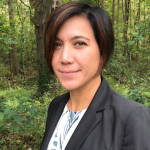 Dr. Aunchalee Palmquist is an Assistant Professor at the UNC-Chapel Hill, Department of Maternal and Child Health, affiliate faculty of the Carolina Global Breastfeeding Institute (CGBI), and faculty fellow of the Carolina Population Center. She is a medical anthropologist and IBCLC. Dr. founded the CGBI Lactation and Infant Feeding in Emergencies (L.I.F.E.) Initiative in 2017, and leads research, practice, and advocacy for evidence-based and quality infant feeding support in disasters and other emergencies in the U.S. and internationally. She is a CGBI representative to the WHO/UNICEF Global Breastfeeding Collective and the ENN Infant Feeding in Emergencies Core Group. In 2020, Dr. Palmquist became the Co-Steward of the United States Breastfeeding Committee, COVID-19 Infant and Young Child Feeding Constellation. Dr. Palmquist has previously served as an International Lactation Consultants Association liaison to the United Nations. Since July 2022, she began her new role as co-lead of the Gillings Humanitarian Health Initiative.
Dr. Aunchalee Palmquist is an Assistant Professor at the UNC-Chapel Hill, Department of Maternal and Child Health, affiliate faculty of the Carolina Global Breastfeeding Institute (CGBI), and faculty fellow of the Carolina Population Center. She is a medical anthropologist and IBCLC. Dr. founded the CGBI Lactation and Infant Feeding in Emergencies (L.I.F.E.) Initiative in 2017, and leads research, practice, and advocacy for evidence-based and quality infant feeding support in disasters and other emergencies in the U.S. and internationally. She is a CGBI representative to the WHO/UNICEF Global Breastfeeding Collective and the ENN Infant Feeding in Emergencies Core Group. In 2020, Dr. Palmquist became the Co-Steward of the United States Breastfeeding Committee, COVID-19 Infant and Young Child Feeding Constellation. Dr. Palmquist has previously served as an International Lactation Consultants Association liaison to the United Nations. Since July 2022, she began her new role as co-lead of the Gillings Humanitarian Health Initiative.
Mar 27 2023: Sneak Preview: The Birth & Early Parenting Resource Directory
Click here to register
Nurture is creating an online repository of verified pregnancy and early parenting resources with the goal of making Richmond’s perinatal health resources readily visible to pregnant and postpartum families and providers, reducing organizational siloing, and creating a better networked maternal/infant health ecosystem. During this session you’ll learn about the background work that went into its development and be able to provide feedback on the directory while it’s still in beta form.
- Objectives:
- Learn about the factors that inspired the directory
- Review similar directories in other communities
- Reflect on how a resource can support and connect Richmond’s perinatal health community
Presenter Bio:
 Leslie Lytle is a mother, wife, yoga teacher, and childbirth advocate who thrives on connecting people with resources and facilitating growth. Leslie began working with pregnant people as a massage therapist in 1992, which influenced her choice of care providers for her own pregnancy in 1995. Inspired by the midwife-supported birth of her son, she became a doula in 1998, began teaching prenatal and postpartum yoga in 2000, and is a former Lamaze Certified Childbirth Educator. Over 3000 pregnant and postpartum people have participated in her programs.
Leslie Lytle is a mother, wife, yoga teacher, and childbirth advocate who thrives on connecting people with resources and facilitating growth. Leslie began working with pregnant people as a massage therapist in 1992, which influenced her choice of care providers for her own pregnancy in 1995. Inspired by the midwife-supported birth of her son, she became a doula in 1998, began teaching prenatal and postpartum yoga in 2000, and is a former Lamaze Certified Childbirth Educator. Over 3000 pregnant and postpartum people have participated in her programs.
Leslie holds an MS in Sociology where her focus was the sociology of health and illness with additional coursework in public health. She is fascinated by the intersection of biology and culture that is ever present in the childbirth and early parenting arenas. A member of the Emerging Nonprofit Leaders Program Class of 2013, Leslie completed a Certificate in Non-Profit Management through Non-Profit Learning Point in 2014, is the 2016 recipient of the Pat Asch Fellowship for Social Justice, and is a member of Initiatives of Change’s Community Trustbuilding Fellowship cohort of 2018. She looks forward to the day when Richmond will be known far and wide as a parent/baby/family friendly city.
Jan 23, 2023: Hot Topics in Milk Banking
with Ashlynn Baker, BSN, RN, IBCLC
Click here to register.
Description:
In this presentation participants will heighten their awareness of the current ethical dilemmas in human milk feeding as it relates to non-profit milk banking, NICU feeding protocols, and mounting pressure from profit seeking entities. Knowledge gained from this presentation will allow the learner time to assess for impact in their own practice and plan for strategic advocacy efforts.
Learning Objectives:
- Describe the formula recall impact.
- Briefly discuss the class action lawsuits related to Necrotizing Enterocolitis (NEC).
- Review the proposed Federal Donor Milk Acts.
Helpful Links:
Presenter Bio:
 Ashlynn Baker, BSN, RN, IBCLC is the Director of The King’s Daughters Milk Bank in Norfolk, VA. She spent 8 years at the bedside as a NICU nurse before establishing our states first and only non-profit human milk bank in 2014. She is an international board certified lactation consultant and the recipient of the March of Dimes Neonatal Nurse of the Year Award, the Women in Business Achievement Award and the Health Care Hero Award. Ashlynn served two terms as a board member for The Human Milk Banking Association of North America (HMBANA) and has been chosen to represent HMBANA on the United States Breastfeeding Committee in 2023. She oversees the operations of The King’s Daughters Milk Bank which is in its ninth year of operation and currently serves over 35 hospitals stretching from New Jersey to Florida.
Ashlynn Baker, BSN, RN, IBCLC is the Director of The King’s Daughters Milk Bank in Norfolk, VA. She spent 8 years at the bedside as a NICU nurse before establishing our states first and only non-profit human milk bank in 2014. She is an international board certified lactation consultant and the recipient of the March of Dimes Neonatal Nurse of the Year Award, the Women in Business Achievement Award and the Health Care Hero Award. Ashlynn served two terms as a board member for The Human Milk Banking Association of North America (HMBANA) and has been chosen to represent HMBANA on the United States Breastfeeding Committee in 2023. She oversees the operations of The King’s Daughters Milk Bank which is in its ninth year of operation and currently serves over 35 hospitals stretching from New Jersey to Florida.
November 21, 2022: TaNefer Camara | A Seat at the Table
Healing for Feeding: Helping the Newborn Family After Traumatic Births
Click here to register
You won’t want to miss this one! Please join us for our last Perinatal Health Monday of 2022 as we welcome maternal health strategist, healer, and researcher TaNefer L. Camara for a lively and provocative discussion about interdisciplinary approaches to lactation and breastfeeding education, advocacy, protection and promotion. After her presentation there will be opportunity for small group conversations to begin thinking about how you might implement these strategies within your own sphere of influence.
Objectives
- Identify disciplines that can work collaboratively with lactation specialists to support breastfeeding and the provision of human milk.
- Discuss challenges in supporting families or parents with the greatest disparities in breastfeeding and facing multiple social and or economic challenges.
- Strategize a plan for reaching marginalized communities and people with high risk and greater needs.
Presenter Bio:
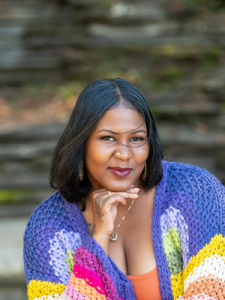 TaNefer L Camara hails from Oakland California. She is a maternal health strategist, healer and researcher with over 15 years’ experience in public health and social services. Inspired by the legacy of Traditional Black Midwives & Healers, she began her journey into Women’s Reproductive Health and Birth Work in 2005. TaNefer has supported mothers through pregnancy, birth & postpartum as a doula/healer/educator and is most known for her work as an International Board Certified Lactation Consultant. She is a Co-Founder of the B.L.A.C.K Course and Owner of T.L.C Consulting and Maternal Healing. She has trained and educated peers, professionals and families in lactation and infant feeding and is world renowned for the viral “Teach Me How to Breastfeed” song and music.
TaNefer L Camara hails from Oakland California. She is a maternal health strategist, healer and researcher with over 15 years’ experience in public health and social services. Inspired by the legacy of Traditional Black Midwives & Healers, she began her journey into Women’s Reproductive Health and Birth Work in 2005. TaNefer has supported mothers through pregnancy, birth & postpartum as a doula/healer/educator and is most known for her work as an International Board Certified Lactation Consultant. She is a Co-Founder of the B.L.A.C.K Course and Owner of T.L.C Consulting and Maternal Healing. She has trained and educated peers, professionals and families in lactation and infant feeding and is world renowned for the viral “Teach Me How to Breastfeed” song and music.
September 19, 2022: Bridging the Gap and Caring for Our Women and Mothers
Click here to register.
Join Shanteny Jackson, Executive Director for the Virginia Community Health Worker Association as we review the roles and responsibilities of Community Health Workers as frontline public health workers. Shanteny will also explore the integration of culture and specialty areas (or scope) that support populations at risk by increasing access to services and reducing barriers to care. Lastly, we will look at the impact policies and health promotion education have in supporting health and wellness infrastructures and resources.
Objectives:
- Understand the role of Community Health Workers (CHWs) in the community.
- Identify CHW competencies that support women and mothers.
- Collaborate with CHWs in bridging the gap around issues of women and maternal health.
About the Presenter:
 Shanteny Jackson is the Executive Director for the Virginia Community Health Worker Association. She worked as a Bilingual Health Educator and Senior Community Health Worker for the Richmond Henrico Health District in Richmond, Virginia at the height of the COVID-19 crisis. Shanteny is a compassionate and collaborative community advocate who strives for justice, a value instilled in her as a girl growing up in her native Costa Rica. In living her values, she has pioneered social and community projects for both Southwood, a majority-Latinx community on Richmond Southside, and Broad Resource Centers. She was nominated and recognized as “Persona de Poder” (Radio 1380 Poder). She was awarded the “Civic Engagement” award by the Virginia Latino Advisory Board. Shanteny highlights the importance of identity and representation in communities of color, particularly for Afro-Latinos in her essay, “The Dream & Reality of an Afro-Latina,” that was featured in the 2021 collection of Richmond Racial Equity Essays. Shanteny holds a master’s degree in Counseling with a concentration in Addictions and Recovery from Liberty University and a Bachelor of Arts in International Relations with minors in Spanish and Education from Mary Baldwin College.
Shanteny Jackson is the Executive Director for the Virginia Community Health Worker Association. She worked as a Bilingual Health Educator and Senior Community Health Worker for the Richmond Henrico Health District in Richmond, Virginia at the height of the COVID-19 crisis. Shanteny is a compassionate and collaborative community advocate who strives for justice, a value instilled in her as a girl growing up in her native Costa Rica. In living her values, she has pioneered social and community projects for both Southwood, a majority-Latinx community on Richmond Southside, and Broad Resource Centers. She was nominated and recognized as “Persona de Poder” (Radio 1380 Poder). She was awarded the “Civic Engagement” award by the Virginia Latino Advisory Board. Shanteny highlights the importance of identity and representation in communities of color, particularly for Afro-Latinos in her essay, “The Dream & Reality of an Afro-Latina,” that was featured in the 2021 collection of Richmond Racial Equity Essays. Shanteny holds a master’s degree in Counseling with a concentration in Addictions and Recovery from Liberty University and a Bachelor of Arts in International Relations with minors in Spanish and Education from Mary Baldwin College.
July 18, 2022: Trauma-informed Birth Work Foregrounding Identity
Click to Register
The presentation will define trauma-informed care, do a brief literature review with a focus on the role of culture/identity and complex PTSD. We will work on identifying benefits and significance of trauma-informed approaches and complete a brief case study to identify trauma and take trauma-informed approaches. In addition, we will review tools for identifying and working in trauma-informed ways and complete action-planning for individual goals.
Learning Outcomes:
Upon completion of this presentation, learners will:
1. Identify three evidenced-based methods for assessing trauma and complex trauma in an empathetic and culturally-informed way.
2. Define complex PTSD and PTSD and identify common signs in perinatal healthcare.
3. Develop a concrete action plan relevant to their background, speciality, and work environment to support trauma-informed perinatal care.
Nurture is partnering with the Virginia Department of Behavioral Health and Developmental Services to provide continuing education credits for this activity.
About the Presenter:
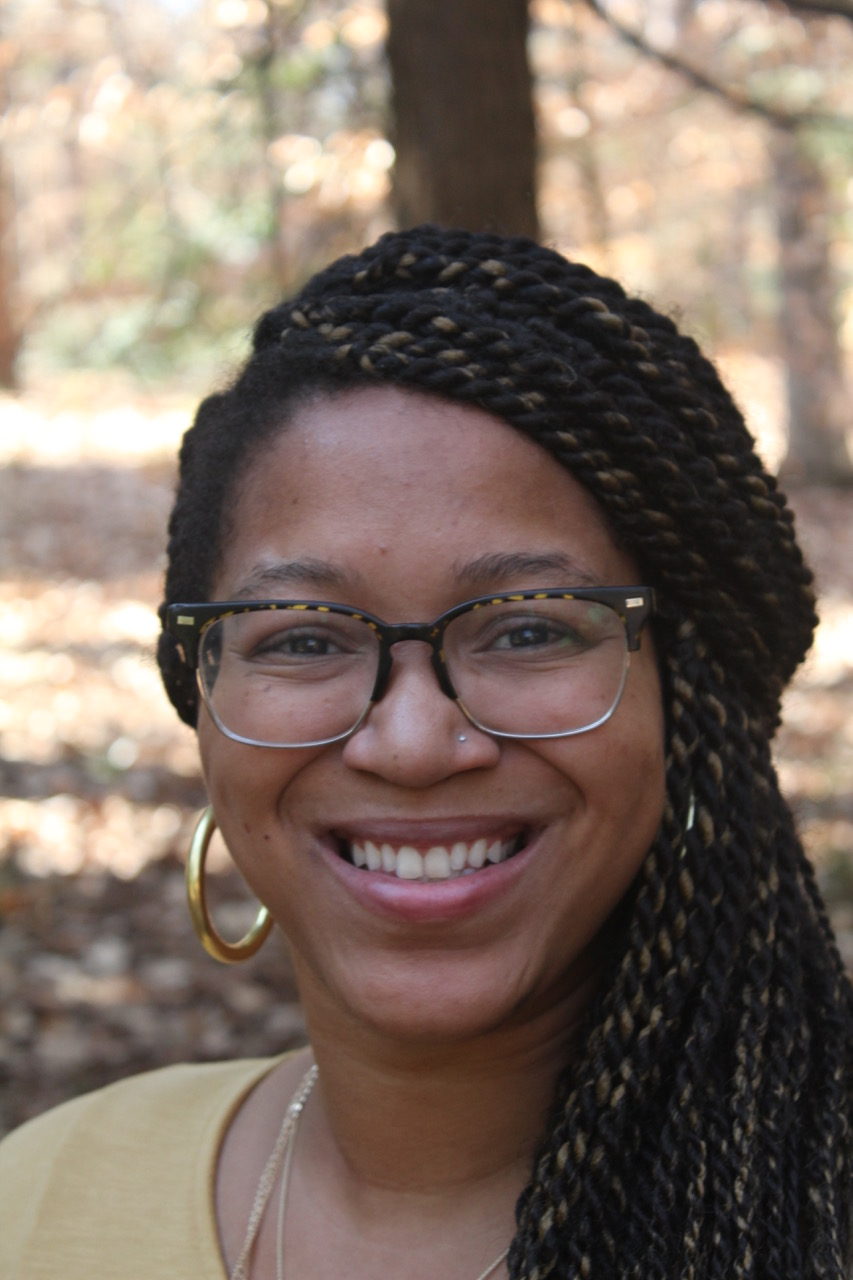 Dr. Janelle S. Peifer is a licensed clinical psychologist, inclusion consultant, and assistant professor of psychology at the University of Richmond of psychology. She specializes in research, mentoring, and clinical work related to complex trauma, culture and identity, and perinatal mental health. She founded and leads two private psychotherapy practices–Peifer Psychology and The Center for Inclusive Therapy + Wellness. Dr. Peifer has worked in schools, hospitals, college counseling centers, veteran’s affairs administrations, and community mental health clinics and believes in low-barrier, solutions-focused therapy rooted in evidence-based practices.
Dr. Janelle S. Peifer is a licensed clinical psychologist, inclusion consultant, and assistant professor of psychology at the University of Richmond of psychology. She specializes in research, mentoring, and clinical work related to complex trauma, culture and identity, and perinatal mental health. She founded and leads two private psychotherapy practices–Peifer Psychology and The Center for Inclusive Therapy + Wellness. Dr. Peifer has worked in schools, hospitals, college counseling centers, veteran’s affairs administrations, and community mental health clinics and believes in low-barrier, solutions-focused therapy rooted in evidence-based practices.
May 16, 2022: Infant Feeding In Emergencies
Click to Register
Birthmark Doula Collective’s Infant Ready program is built on international standards for infant and young child feeding in emergencies (IYCFE) and promotes breastfeeding as the safest feeding option in emergencies through training, educational materials, and distribution of emergency feeding kits. This presentation highlights our experiences providing support to pregnant and parenting families following Hurricane Laura in 2020. It raises the important question of how to support populations with low breastfeeding rates in emergencies and offers recommendations for improving perinatal emergency preparedness for future disaster events.
Objectives:
- Define infant and young child feeding in emergencies (IYCFE).
- Describe the gaps observed in supporting pregnant and parenting families with children under 2 years old following Hurricane Laura in New Orleans.
- List 2 recommendations for improving perinatal emergency preparedness.
About the Presenter: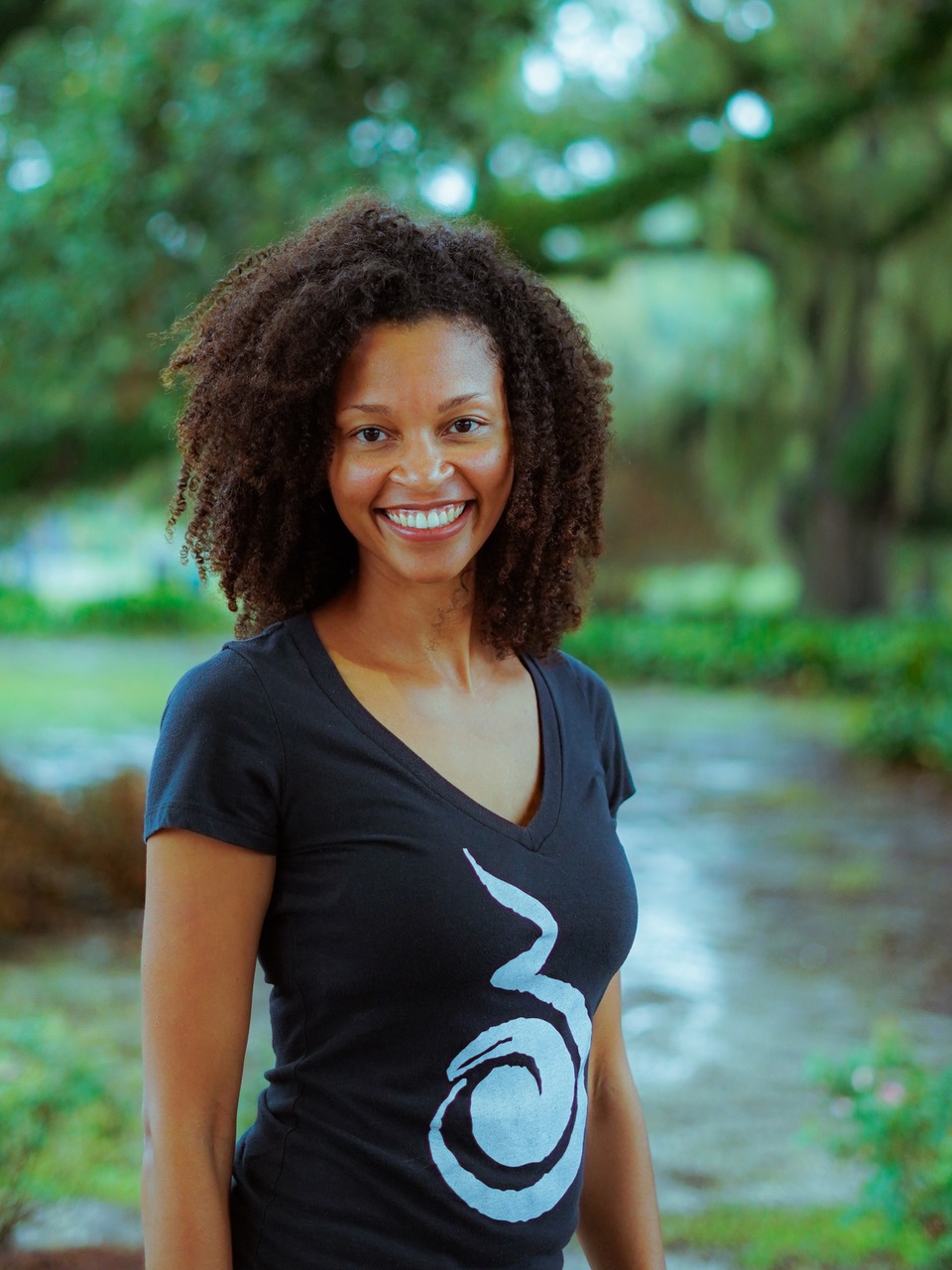 Malaika Ludman is a birth doula and certified lactation counselor who holds a master’s degree in public health. She is a program coordinator at Birthmark Doula Collective and primarily manages the organization’s emergency preparedness program. As a mother of two, she recognizes the value in providing all pregnant and postpartum families with equal access to gentle, supportive, and compassionate care. Before becoming involved in community-based maternal health programs and services, Malaika served as a Peace Corps volunteer in Benin and later spent 5 years working for a global non-profit organization based in the DC area.
Malaika Ludman is a birth doula and certified lactation counselor who holds a master’s degree in public health. She is a program coordinator at Birthmark Doula Collective and primarily manages the organization’s emergency preparedness program. As a mother of two, she recognizes the value in providing all pregnant and postpartum families with equal access to gentle, supportive, and compassionate care. Before becoming involved in community-based maternal health programs and services, Malaika served as a Peace Corps volunteer in Benin and later spent 5 years working for a global non-profit organization based in the DC area.
March 21, 2022: #RVAbreastfeeds Convening
Click to register.
#RVAbreastfeeds is a Healthy Communities Action Team administered by Nurture that promotes policy, systems, and environmental changes that support a breastfeeding friendly community in Richmond, VA. Join the first convening of #RVAbreastfeeds for 2022, reconnect with your colleagues, and help shape our direction for the year to come. We’ll review the 10 Steps to a Breastfeeding Family Friendly Community determine actionable steps we can take during the year to come in light of the current pandemic situation.
#RVAbreastfeeds is supported by a grant from the Virginia Foundation for Healthy Youth.
January 31, 2022: Perinatal Resource Mapping Project Results
Click to Register
Nurture is excited to let you know that we have completed an analysis of the information shared by 132 local lactation support, doula support, and perinatal mental health support providers. The data collected included information on provider demographics, practice location and settings, types of compensation accepted, and more!
Please join us on Monday, January 31, from 4:30 – 6:00 pm for our first Maternal Health Monday Chat, as we share the results of the Perinatal Resource Mapping Project. The presentation will be led by Richmond City Health District CDC Fellow Emily Schreer and University of Richmond graduate Isabella Araujo, followed by an opportunity to gather in small group dialogue with local maternal health providers and advocates to explore ways we can improve the local perinatal health ecosystem. Click here to sign up.
